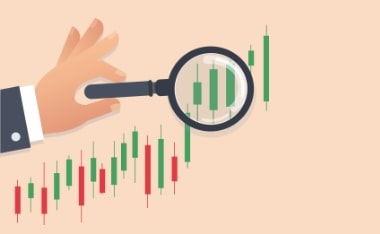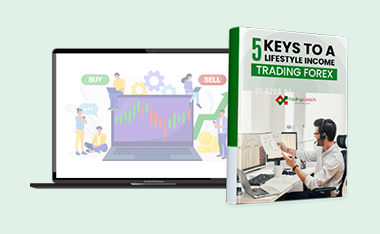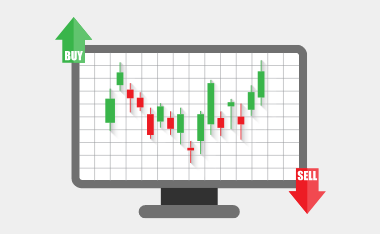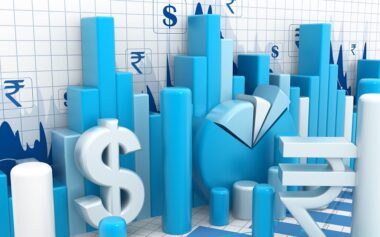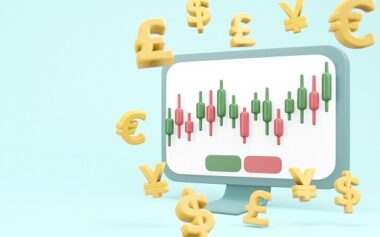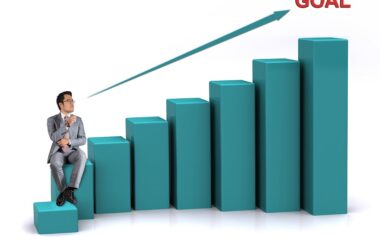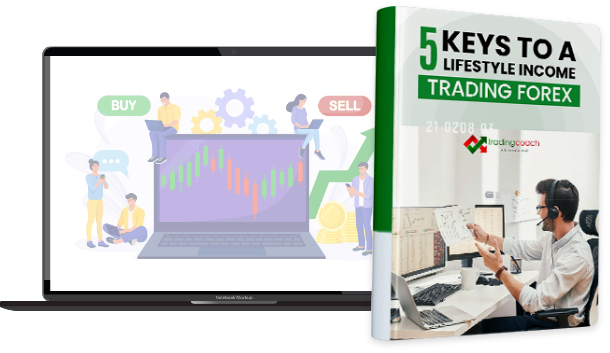How does Forex Trading Work?
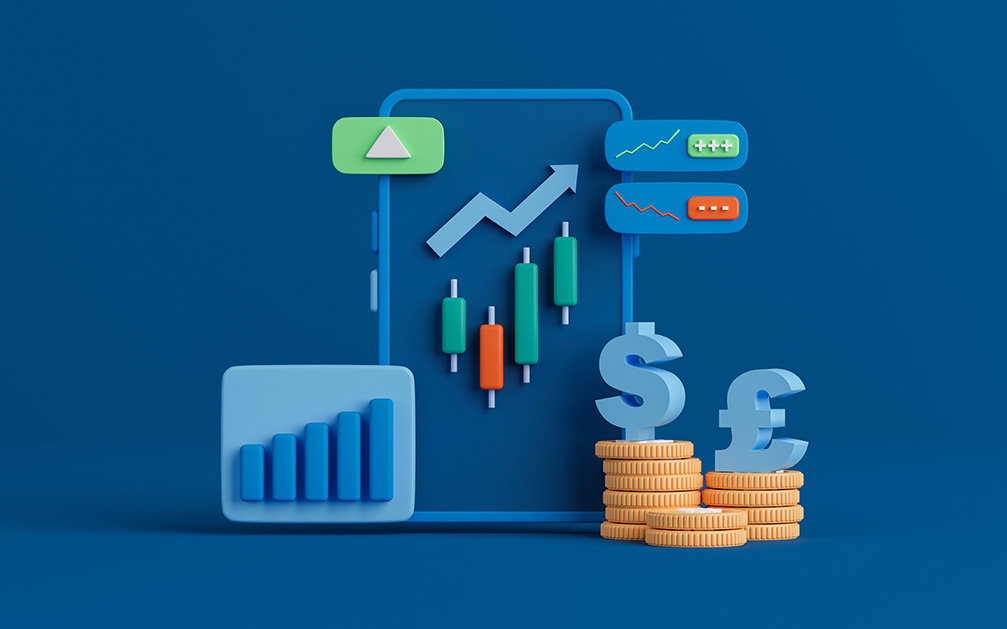
Foreign exchange (or forex) trading is really the global market for exchanging and trading foreign currencies, either as part of international trade or for profit speculation.
The History of Forex Trading
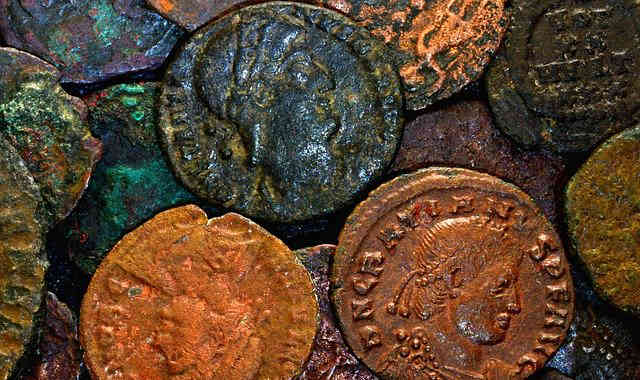
Although international currencies have been traded for thousands of years, ever since the first coins were made thousands of years ago, the modern era of forex trading dates back to the Bretton Woods Agreement created in 1944 between the then major economic powers, being The United States, Great Britain and France.
With a vision on post World War 2 economic stability, the Agreement sought to establish a new, consistent global economic order.
The agreement established an adjustable pegged foreign exchange market whereby an individual country’s currency value was fixed to another currency.
At the time, the United States had the world’s largest gold reserve (seen at the time as the key indicator of a country’s true wealth); hence the US dollar was pegged to gold.
Other countries then fixed their exchange rates to the value of the US dollar, with the view that it would demonstrate the true value of the currency…
Post WW2 and through the turmoil and demonstration of wealth and power that followed, the US Government embarked on a massive campaign of lending and spending, with the goal to obtain even more resources, better technology and superior military compared with its “rivals”.
As a result, the US Government issued more and more dollars, extending the amount of currency in circulation far beyond the value of gold stored in the Federal Reserves.
With the potential of international governments call in gold from the funds borrowed internationally, the system collapsed in the space of one weekend in 1971.
Ultimately, after much negotiation and economic push – pull, there was a switch to an internationally regulated “free-floating system” which allows a currency’s value in relation to other currencies to fluctuate in response to the constantly changing circumstances in the foreign exchange markets.
Forex Trading Today
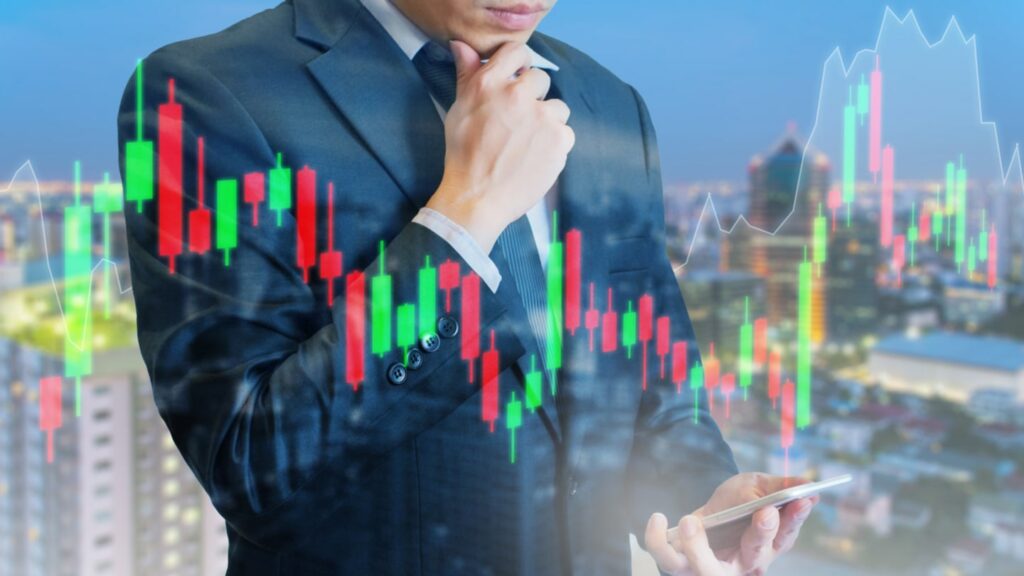
This is the system that operates until this day, responding to the Fundamental Value changes that occur as governments release updated figures from Balance of Trades, Consumer Price Index, Increase or Decrease in Manufacturing, Bank Interest Rates and Employment Rates.
With a current average daily trade volume of $7.5 US trillion, FX trading is currently the largest financial market in the world, with value traded exceeding 25 times all other combined US traded markets.
Because of the nature of Forex Trading being a global market that spans all time zones, the market is open for Retail Trade occurs 24 hours a day, except for weekends.
Essentially, Trading in forex involves forecasting and looking to profit from changes in currency exchange rates.
Depending on the Strategy employed by the individual trader or organisation that institutional traders work for, trades can be held for seconds, minutes, hours, days, weeks or months.
Based upon fundamental economic strength, liquidity, volume traded and their tradability, currencies are classified as either “Major” currencies in the forex market or “Minor” currencies.
The major currencies include the United States dollar (USD), Eurozone Euro (EUR), Great Britain pound (GBP), Japanese yen (JPY), Australian dollar (AUD), Switzerland franc (CHF), Canadian dollar (CAD), and the New Zealand Dollar (NZD).
Minor currencies are not widely traded or used internationally and are seen to have less global importance and less potential to be traded than Major currencies.
Smaller or developing economies frequently issue minor currencies, unsupported by exports or other relevance to the majors and are therefore not as stable or liquid as major currencies.
The advancement of technology today has made it possible for virtually everyone interested in learning how to trade forex to participate in the forex market at a place and time convenient to their circumstances and strategy.
Institutional Traders and Retail Traders
Institutional traders sell and buy forex contracts on behalf of large institutions such as banks, hedge funds, pension funds, mutual funds and other large financial firms.
Institutional traders have access to asset classes like swaps and forwards that are unavailable to retail traders.
Due to the sheer volume they trade, they are most likely to directly and substantially impact the prices of currency pairs and are often referred to as market drivers.
Based upon recent studies, it has been calculated that approximately 70% of daily forex trades are executed by Institutional Traders working for just 13 Financial Institutions.
A further 25%+ of trades are executed by other major financial institutions around the world, with less than 5% of the market volume traded by Retail Traders.
Retail Traders are individual traders who buy forex contracts for themselves, with the view to earn profit from the contract value fluctuation.
For the most part, Retail Traders have vastly fewer resources and capital to trade with than institutional traders. Because of this, the volume of their trades is insufficient to impact the prices; hence they follow the big leaders, i.e. the Institutional Traders.
Understanding the forces that drive the market, as well as who makes the market move is often the most overlooked key to survival for Retail Traders.
Brokers
Forex brokers are financial intermediaries who facilitate the buying and selling of foreign currency contracts by providing access to the forex market through a trading platform.
Retail Forex Brokers allow Retail Traders to buy and sell currency contracts for a lower cost of entry, charging traders a fee, commission or “spread” for each transaction they execute.
Because of the size of the market and the potential for profit by Retail Brokers, they support the “Retail” Trading sector.
Forex brokers are regulated in the countries in which they are located. For example, brokers based in The United States are regulated by the SEC and brokers based in Australia are regulated by ASIC.
Trading platforms are software programs that provide access to place and exit trades through the brokers accounts.
Most trading platforms provide forex traders with various features and tools to analyze markets to apply their trading strategy to find strongest trade opportunities, manage their trading accounts and place orders.
Many Forex brokers have proprietary trading platforms developed exclusively by them, to give clients stronger opportunities. This also allows them to control all the aspects of the platform and how the tools are used by their clients.
Other companies develop third-party trading platforms that are offered by a number of brokers. This offers the broker the ability to reduce their costs and potentially pass savings on to clients. Therefore, the broker does not have control over the platform operations, though they may perform some platform customization.
MetaTrader 4 and Meta Trader 5 are basic trading third party platforms, while Think Trader and ProRealTime Charts technical analysis software stands out due to their customisability, fluidity and user-friendly interface.
Your Forex Trading Strategy
A trading system, strategy or “edge” is a proven process of rules and regulations that traders have evolved through time to maximise profits and minimise losses when trading the foreign exchange.
Technical analysis (the reading of a combination of technical indicators), fundamental analysis (the reading of a currency’s strength based purely on economic factors), or both may form the foundation of a forex trading strategy.
Traders may use manual methods to trade, which involve analyzing charts and looking for signals that they interpret to buy or sell currencies and execute the trades independently.
Automated methods or systems are developed algorithms (EA’s or bots) that automatically detect signals of whether to buy or sell currencies and automatically execute the trades.
Forex traders need to develop the best trading strategy to suit their trading style, investment, availability and trading goals to be effective in the markets and become profitable.
The most sustainable and highest performing trading strategies integrate various components such as selecting the right pair of currencies, the position sizing of their trades, and the strength and consistency of the entry and exit points at which they execute their trades.
Your trading strategy should offer an effective, profit-focused risk-to-reward ratio.
It is essential to review and potentially reevaluate your forex trading strategy from time to time due to the changing and cyclical nature of markets, as what may be working today is not necessarily guaranteed to work tomorrow.
Forex Trading Mindset
The most productive and long-term profitable mindset for effective forex trading is a combination of focus, discipline, and patience.
For long term profit (and sanity), forex traders wanting to achieve a sustainable income from their endeavour should adopt a risk-aware trading mindset that is emotionally detached, patient, and focused on consistency above all else.
It’s critical to approach trading with a clear head and to be conscious of the emotions that can cloud one’s judgment to make rational decisions.
Trading successfully requires patience since it enables traders to wait for the ideal time to initiate or close a position.
Success in trading also depends on your consistency because traders can only achieve the long term sustainable profits and asset growth that a proven effective forex trading strategy can produce if they allow the probabilities inherent in that long term strategy.
You can’t win every trade, there will be a sample of unprofitable trades in every strategy. The unprofitable tries to be right all the time, the profitable trader allows the system to find the balance of profit and loss to produce long term profits.
Finally, risk management is essential for successful trading since it enables investors to control their funds and minimize losses.
We will look at specific risk management elements and strategies in other articles.
Conclusion
Forex trading is a proven profitable way to invest money in the financial markets to make profits.
It is essential to understand the fundamentals of forex trading before getting started in order to prevent capital loss.
Forex traders should invest more time and effort in learning how to trade forex and the ins and outs of the market before they invest real money in the forex markets.
To make proper, well planned and strategic trading decisions, it is essential for traders to be up to date with economic news and events that impact the prices of currencies and how the Institutional “Big Fish” intend to respond to the shifts in value.
Risk management is the foundation for a trader’s success in the forex market.
Forex traders should employ proven effective risk management strategies such as setting stop-losses, diversifying their trades across various strong performing currency pairs and effectively use tools such as leverage.
More Information
For more trading term general definitions, visit our A to Z of Forex Trading
To look at these concepts in action, please visit our sister site, Latest Forex Rates
What to Do Next
If you want to learn more about forex trading as a potential opportunity for you and to obtain information about whether this could work for you from an experienced trader and trading coach, book your free strategy call HERE
Disclaimer
The information, strategies, techniques and approaches discussed in this article are for general information purposes only and studies of potential options. The Trading Coach International does not necessarily use, promote nor recommend any strategies discussed in this article. The information in this article may not be suitable for your personal financial circumstances and you should seek independent qualified financial advice before implementing any financial strategy. The Trading Coach International is not a financial advisor and does not have AFS registration.

